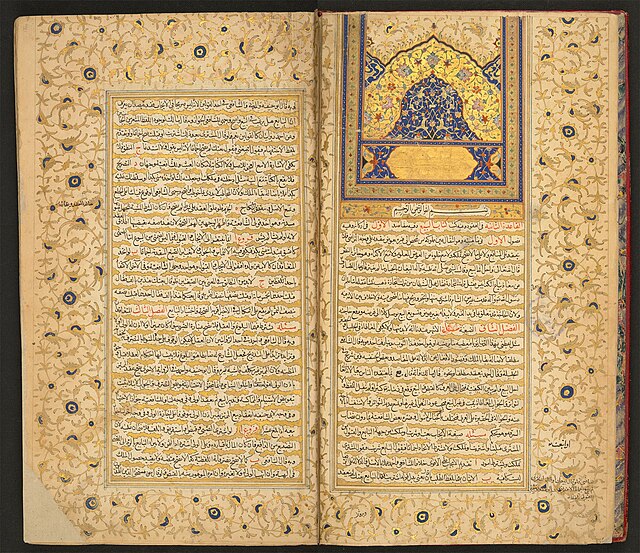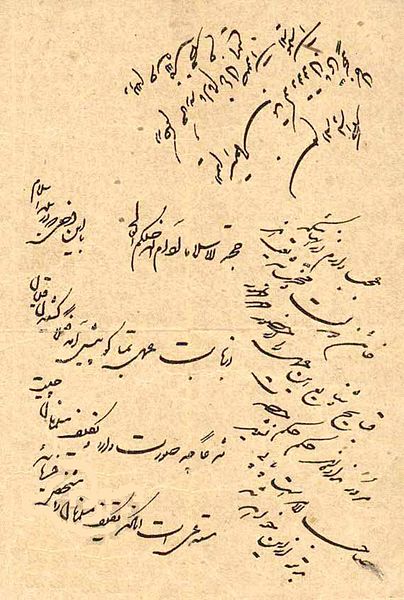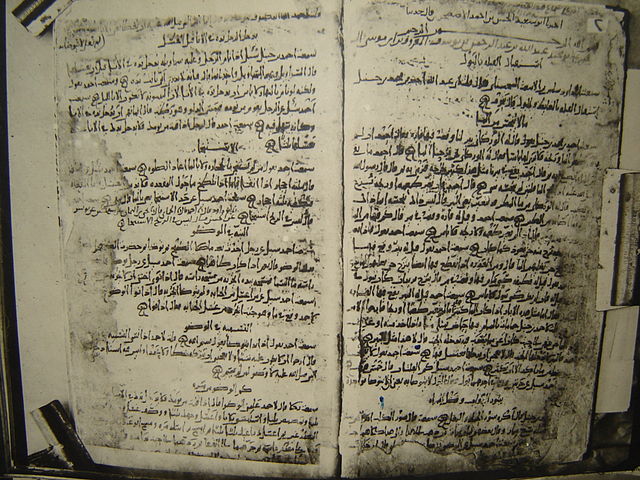A fatwa is a legal ruling on a point of Islamic law (sharia) given by a qualified Islamic jurist (faqih) in response to a question posed by a private individual, judge or government. A jurist issuing fatwas is called a mufti, and the act of issuing fatwas is called ifta'. Fatwas have played an important role throughout Islamic history, taking on new forms in the modern era.
Page from a compilation of fatwas from Safavid Persia, late 17th century
Ulugh Beg Madrasa, Samarkand (est. 1422)
Tobacco protest fatwa issued by Mirza Shirazi
Fatwa supporting the Ottoman proclamation of jihad in 1914, read by the Custodian Of The Fatwa (Fetva Emini)
Sharia is a body of religious law that forms a part of the Islamic tradition based on scriptures of Islam, particularly the Quran and hadith. In Arabic, the term sharīʿah refers to God's immutable divine law and this referencing is contrasted with fiqh, which refers to its interpretations by Islamic scholars. Fiqh, practical application side of sharia in a sense, was elaborated over the centuries by legal opinions issued by qualified jurists and sharia has never been the sole valid legal system in Islam historically; it has always been used alongside customary law from the beginning, and applied in courts by ruler-appointed judges, integrated with various economic, criminal and administrative laws issued by Muslim rulers.
Imam Shafi'i tomb in Cairo
Grand Ayatollahs of Qom, Iran; Religious leaders who have the authority to interpret sharia sources in Shia Islam used assertive names and titles such as Ruhollah, Ayatollah, Hujjat al-Islam, which directly connect their identities to Allah or Islam, and gained tutelage over people and the administration whose decisions cannot be questioned anymore.
Juristic exchange between Abu Dawood and Ibn Hanbal. One of the oldest literary manuscripts of the Islamic world, dated October 879 AD.
Ulugh Beg Madrasa, Samarkand (est. 1422)







